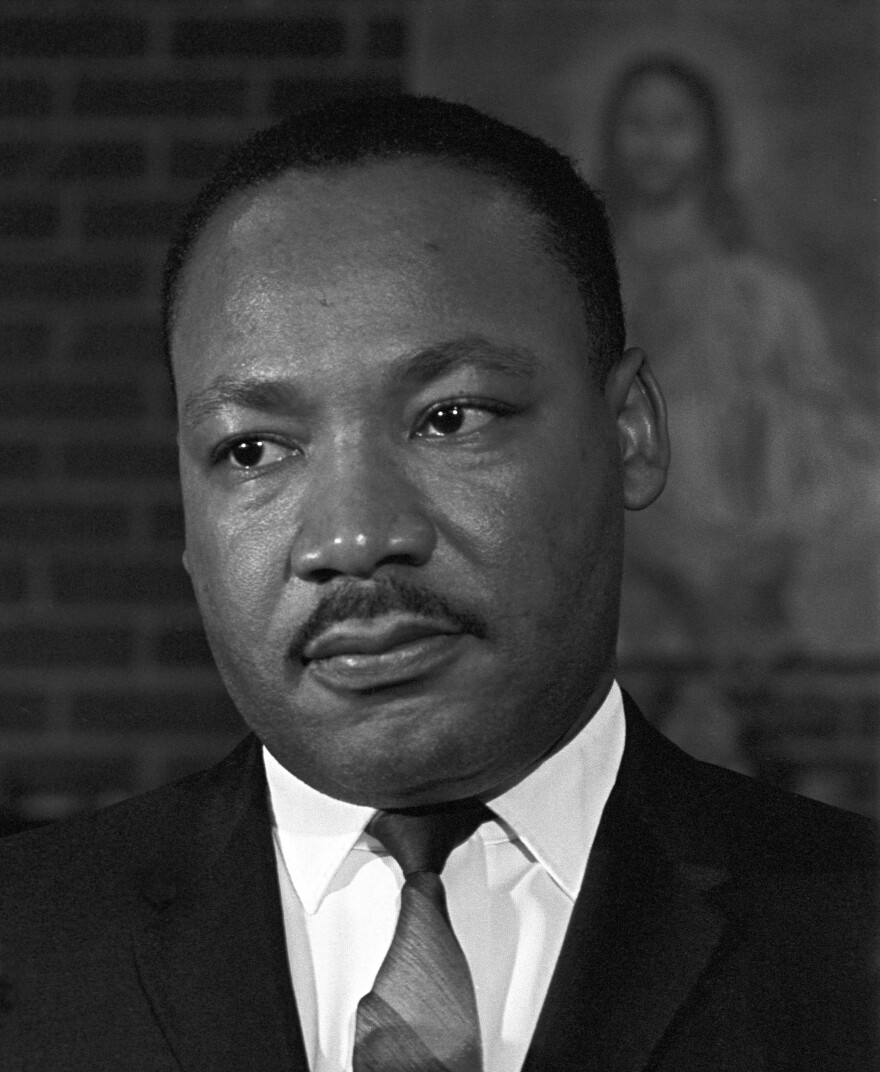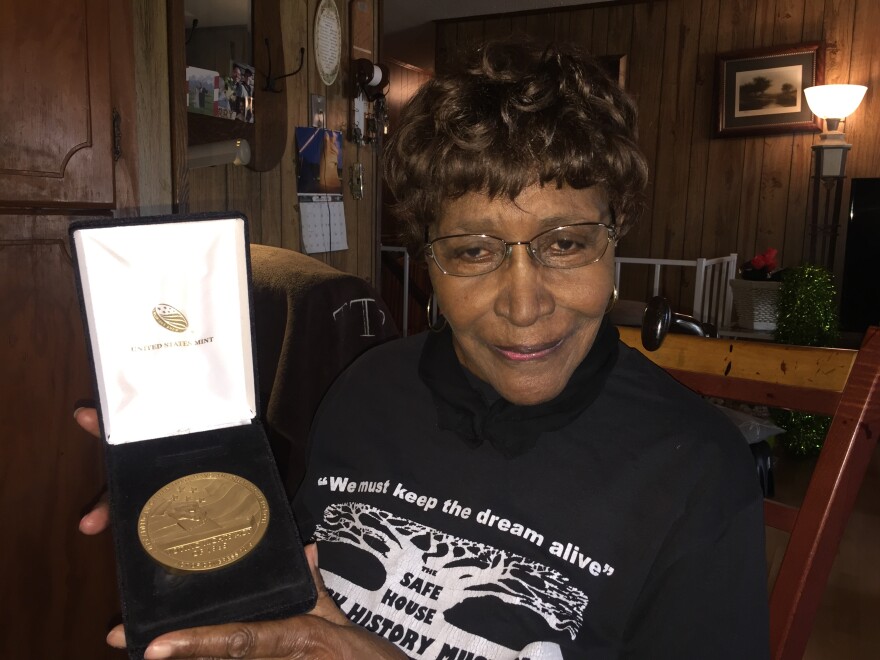Alabama Public Radio is celebrating its fortieth anniversary this year. The news team has generated a lot of stories in all that time. And we’ll be spending the year listening back to the best of the best of these features. That includes this story from 2018. That when APR won national awards covering the fiftieth anniversary of the death of Doctor Martin Luther King Junior. The story focuses on a resident of Greensboro who knew Dr. King and his wife Coretta in good times and in bad…
Students from Hale County High school are heading into a small shotgun style house. This home sits on a dirt road along Main Street in the town of Greensboro, about an hour south of Tuscaloosa.

It’s a museum now, but back in the late 1960’s, it was a safe house for civil rights activists, including Dr. Martin Luther King, Junior.
The relationship between King, the safe house, and its owner didn’t get off on the right foot.
“He was not impressive at all. Not what I expected you know,” said the late Teresa Burroughs. She was eighty eight when she sat down with APR. Her home sat next door to the safe house museum. She owned both. Burroughs and her neighbors like to say Alabama’s civil rights movement began in rural communities like theirs. But, Burroughs says Martin Luther King, Junior just wasn’t the kind of man she thought one of her best friends would marry…
“I just imaged her with a football player…about six something, you know. Martin was not like that,” Burroughs speculated.
The friend Burroughs thought would marry a football player was named Coretta Scott. The future Mrs. King was born in the town Marion, about half hour east of Greensboro. As young ladies, Burroughs and Scott would talk about boys, and about the future. Burroughs says there was someone her friend said she wanted to grow up to be like…

“She had beautiful voice,” recalled Burroughs. “And she always told me. She said I’m going to be another Marion Anderson, and I’m going to tour the world, and sing. And you’re going to read about me, because I’m going to be star. That was just the way she was talking, and I said ‘well, alright.’ She gave up her dream and took on his.”
Burroughs impression of Martin Luther King, Junior got better, though. Once he did what many people say he did best…
“The spirit seem to enter his body and comes out through his voice, and it moves you…it moves a person. After we got to know each other better, he was all right.” Burroughs conceded.
King gave this speech before Union healthcare workers in New England in March of 1968. It wasn’t the only talk he gave that month…ten days later he was in Eutaw, Alabama urging supporters to elect black candidates to Congress. Burroughs says after his talk, King headed straight to Greensboro to stay in the safe house.
“It was terrible night, it was an awful night,” she recalled.

The reason was because the Ku Klux Klan heard King was in Alabama. An armed group of Klansmen spent the night looking for him in Greensboro…
“They would drive slowly by and you could see them inside their cars, and you could see the barrels of their guns. They had the lights on on the inside of their cars, and they had the lights off on the outside of their cars. We kept him safe,” Burroughs told APR.
King left the next morning. For Teresa Burroughs and King’s supporters in Greensboro, the feeling the victory lasted just two weeks…
“It seemed as if I was weak in the knees (after hearing of King’s assassination,) my knees and everything was weak, and I just had to sit down. I just couldn’t stand anymore,” Burroughs stated.
Theresa Burroughs says that’s why she made the safe house into a museum. She wants people remember what happened here fifty years ago, her long after she’s gone.
That story came from the Alabama Public Radio archives as APR celebrates forty years on the air. The feature helped APR win a Gold Radio Award from the New York Festivals International Radio competition. Our stories about Dr. King in Alabama were also honored with the Salute to Excellence award from the Society of Professional Journalists. We’ll be diving into the APR archives as we celebrate our fortieth anniversary on the air here in Alabama.





